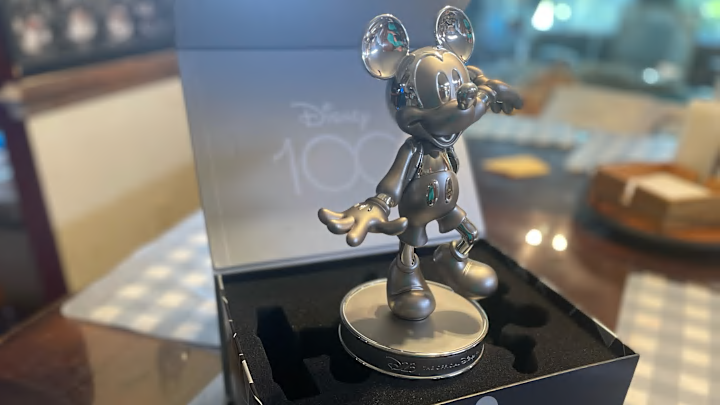A major question hanging over Disney fans has been what happens when Mickey Mouse enters the public domain in 2024. Now, Disney has clarified just what this means and if Mickey can be used by anyone.
For many, the idea that Mickey Mouse could be owned by anyone but Disney seems impossible. But copyright law is a tricky thing. Walt took a while to trademark Mickey and only the more "modern" versions of him in the 1940s. That means the very first appearance of Mickey in the historic 1928 short Steamboat Willie wasn't covered.
Over the decades, Disney has managed to get extensions from Congress to keep this trademark going (often dismissed as "The Mickey Mouse Act" despite how other companies use it as well). However, it's set to finally end on January 1st, 2024 and thus Mickey can enter the public domain, which opens up some interesting possibilities.
What does entering the public domain mean?
Public domain means a character can be used in various ways, even famous ones such as the various fairy tale characters or Greek myths. It also includes various heroes of the past like Robin Hood, Zorro, Dracula, Sherlock Holmes and King Arthur. It’s why you see so many movies and novels able to use these characters, there’s no central estate you have to pay for the rights to present in an offbeat setting.
With Disney, they were able to put enough of a spin on classic fairy tale characters (Snow White, Cinderella, etc) that their versions are different enough from the originals to count as separate entities. So, say, someone can do a movie with a take on Snow White, just not copy the Disney Snow White.
Disney has undergone this before, as the original Winnie the Pooh characters entered the public domain in 2022. However, that was for the original versions of the characters created by A.A. Milne, not the Disney versions used in cartoons and shows. That allowed for the creation of the dark horror comedy Winnie the Pooh: Blood and Honey, reimagining the characters in a slasher setting.
Now, the original version of Mickey will follow that into the public domain. So does this mean fans can expect Mickey to become Jason Vorhees? Or a take on the video games of a black-and-white Mickey lookalike blasting away enemies? Or even Dreamworks using Mickey in the next Shrek movie? Well, it's not so simple.
Disney clarifies Mickey's position
If you thought Disney was going to let its company mascot be utilized by just about anyone, anywhere, I've got a theme park in California to sell you.
After weeks of buzz about this, a Disney spokesperson clarified Disney's position to the Associated Press, which is that Mickey still belongs to them.
"Ever since Mickey Mouse's first appearance in the 1928 short film Steamboat Willie, people have associated the character with Disney's stories, experiences, and authentic products. That will not change when the copyright in the Steamboat Willie film expires. More modern versions of Mickey will remain unaffected by the expiration of the Steamboat Willie copyright, and Mickey will continue to play a leading role as a global ambassador for the Walt Disney Company in our storytelling, theme park attractions, and merchandise. We will, of course, continue to protect our rights in the more modern versions of Mickey Mouse and other works that remain subject to copyright."
Deciphering the corporate speak, this means that artists and creators are only able to use the more mischievous, rat-like, non-speaking boat captain in "Steamboat Willie" that has become public. The more modern Mickey (who debuted in Fantasia) is strictly off-limits.
Even then, you better believe Disney is going to be watching closely anyone who tries to use that older Mickey in a way they don't like. Sure, The Simpsons (which technically is owned by Disney after the Fox merger) might get away with a gag using the character. But Disney isn't going to let a take on Mickey pop up in a rival animation studio's film or a theme park and most creators are smart enough not to cross them.
Sure, Universal would love to tweak Disney by putting a version of Steamboat Willie Mickey in the parks, but they're not going to risk the wrath of Disney lawyers. Likewise, a lot of artists will be as wary, while some may dare to use the character in a parody of some sort. Yet Disney has been preparing for this for a while and is likely finding quite a few loopholes in the public domain laws to prevent Mickey appearing in material they don't like.
The thing is always going to be that Disney is protective of Mickey in all his forms, especially the first (which was used as the opening leitmotif for Disney Animation Studios). So, while this Steamboat Willie version will be public domain in 2024, don't expect it to be overly used as Disney will ever ensure Mickey is somehow theirs forever.
